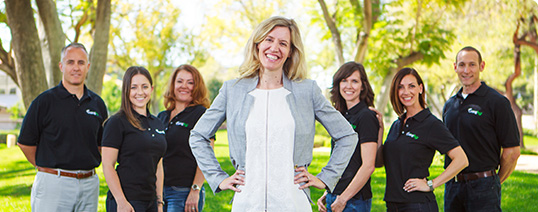High School Course Selection
Whether you are about to enter high school or enrolling in your last year of classes, you have lots of options. Get advice from the experts on how colleges will evaluate what you take (and what you don’t take).
According to the National Association for College Admission Counseling, the five factors of greatest importance to admissions offices when evaluating prospective students are:
- Grades in college-prep courses
- Strength of curriculum
- Admission test scores
- Grades in all classes
- Essay or writing sample.
While many things about applying to college have changed, high school performance has consistently topped the list of the most important parts of your college application for the past 20 years. Some colleges want your unweighted GPA, some consider the weighted number, and some will recalculate it on their own. But in some form or another, your grades are your biggest impression. So, pay attention to what is offered at your high school and your grades in the classes you choose. For some state colleges and universities, in-state students won’t even need to submit anything beyond your high school transcript to apply. If your grades are good enough, you’re in!

Your high school grades are not just important on their own, but also in comparison to your classmates. Whether your high school reports your ranking or not on your transcript, George Washington University, University of Pennsylvania and many others colleges evaluate students from the same high school one right after the other. You’ll want to take just as rigorous a class load as anyone else from your high school applying to the same college.
While a C your freshman year might not be as concerning as a C your junior year of high school, everything you do in your four years at high school is what prospective colleges will evaluate. Going Ivy admissions counselors are experts in helping you choose from the many course offerings to put you in the strongest position to stand out as a college applicant. We have helped students get accepted at Harvard, Stanford, Columbia and every other top school in the country, and we know the high school transcript it takes.
Advanced vs. Regular Level
It’s always a good idea to warm up at the beginning of your soccer practice. Practice your speech before giving a class presentation. Stretch before a yoga class. Much the same, taking courses in high school that prepare you for college is always a good idea.
The most important classes to colleges are typically math, science (especially a couple of lab science courses), English, history and foreign language. Admissions officers would like to see you progress to more and more advanced courses in these disciplines throughout high school. Taking Advanced Placement and honors classes freshman through junior year and then dropping down to easier levels your senior year is not a good idea.
Here is a general list of the most important classes you’ll want to cover in high school:
- Math: Algebra, Geometry, Trigonometry, Pre-Calculus, Calculus
- Science: Biology, Chemistry, Physics
- English: one course per year
- History: Government, U.S. History, World or European History
- Foreign Language: at least three years
- Art, Music or Theater
At Going Ivy, we recommend pushing yourself to the most advanced level of courses you can in high school. If there is a choice between AP English and regular, choose AP. If you’ve taken two years of Spanish, don’t switch to French your junior year. And will it be too much to handle four advanced-level courses your senior year? You never know until you try. If you’re a math prodigy and your high school doesn’t offer anything beyond calculus, get creative by taking classes through a community college or an online curriculum.
Many students and parents wonder if it is better to get a B in an AP Chemistry class or an A in a general health class. The B in a difficult class looks much better than skating through easy classes.
But do you know what’s better? Getting an A in the difficult class. If you’re already enrolled in a class and need help advancing to the next level, we can help with tutoring.
Everyone needs balance in their lives, too. We do not recommend pushing yourself to the limit in high school that is unsustainable. Set yourself up for success by picking the best classes for you—the classes that will highlight your strengths. It’s not always so simple, and Going Ivy can help.
Establishing a Track Record in High School
Many high schools place students in certain “tracks” when they enter in their freshman year that will stay with them throughout their tenure. Colleges are very familiar with International Baccalaureate or Great Books programs, and just being in these tracks will impress. Many high school counselors can create a plan for the courses you’ll be able to get through in four years. Your Going Ivy counselor can also give you a roadmap for the courses you should aim to take. Our advice is always to start as you mean to finish! Taking challenging courses your first year sets the stage for challenging yourself throughout high school and into college.
Because colleges look at everything a student does starting in their freshman year of high school, it’s important to think about the perception you’re giving to colleges starting that first year of high school. Many colleges want your guidance counselor to weigh in on how demanding your courses have been, and they’ll research your high school to determine how well it has prepared you for college-level work.
Whether you are just entering high school or enrolling in your last year of classes, you have lots of options for college-prep courses, electives, level of difficulty and more. Get advice from the experts on how colleges will evaluate what you take (and what you don’t take).
Contact Going Ivy to Schedule Your Consultation
Going Ivy recognizes the importance of choosing the right classes to succeed in high school and beyond. In order to help you with your decision, we offer all of our prospective students free, no-obligation consultations. This allows you to ask us whatever you’d like to know and allows us the ability to learn more about you and your goals. Call us today to learn more about how we can help and to schedule your appointment.
Clients Accepted To

Our Team
Meet our team of former admissions officers, Ivy League and top school graduates, and tutors.
